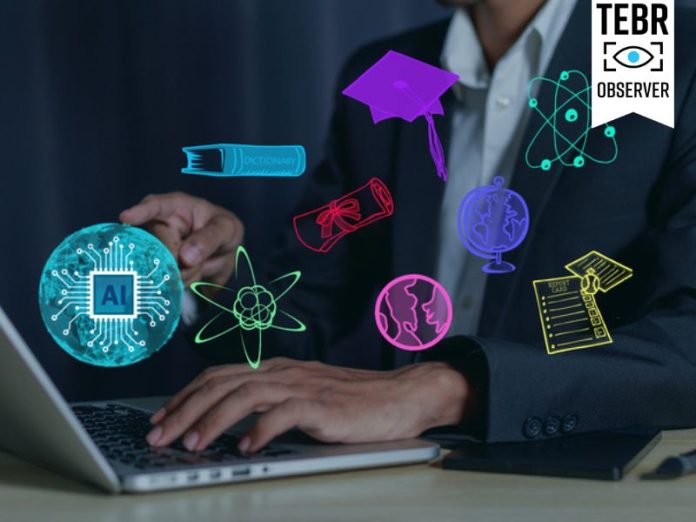By Marcelina Horrillo Husillos, Journalist and Correspondent at The European Business Review
In the spring of 2013, the Association to Advance Collegiate Schools of Business (AACSB) launched new standards for accreditation of its member business schools. The revision of the AACSB accreditation standards was a response to the new challenges of creating value in an increasingly global, interactive and fast-changing business world and society. Economic pressures on business schools have forced a paradigm shift in the teaching and learning models required to prepare business school graduates for successful careers and meaningful social and personal lives. Under the newly revised standards, (re)accreditation by AACSB will require that schools provide evidence of ongoing improvement in three areas: innovation, impact, and engagement.
The tech sector unstoppable evolution demands constant adaptability and proficiency of workforce skills. The continuous tech demands require constant vigilance from leaders to assess and address skills gaps within their teams effectively. As business leaders navigate this challenge, they must ensure their teams not only stay competitive but also remain at the forefront of innovation. To that end, 19 Forbes Business Council members share strategies that can empower leaders to evaluate the skill sets of their teams and ensure their organizations remain agile, competitive and primed for success.
Competency-Based Assessments
The integration of advanced technologies like artificial intelligence (AI) and data analytics into assessment platforms has enhanced their efficiency, making them increasingly popular among organizations aiming to streamline their evaluation processes.
The Assessment Services Market is growing remarkably, with its value projected to increase from USD 9,505 million in 2024 to USD 24,560.45 million by 2032, reflecting a robust compound annual growth rate of 12.60% during the forecast period. This growth is driven by the escalating demand for assessment tools across industries such as education, corporate, and government sectors. The rising emphasis on skill development, employee performance evaluations, and standardized testing in academic institutions has significantly contributed to the market’s expansion. Additionally, the integration of advanced technologies like artificial intelligence (AI) and data analytics into assessment platforms has enhanced their efficiency, making them increasingly popular among organizations aiming to streamline their evaluation processes.
As companies are moving beyond traditional credentials, focusing instead on the tangible abilities’ individuals bring to the table, the competency-based becomes a strategic imperative. Tech giants like Google and Amazon have adopted rigorous skill assessments in their hiring practices, ensuring candidates can meet the dynamic demands of their roles from day one.
The digital revolution is accelerating this effect, especially in work and education. The global shift toward remote operations has catapulted the demand for virtual assessment services to new heights. According to a report by Global Market Insights, the e-learning market is projected to surpass $375 billion USD by 2026, a testament to the booming online education sector.
Organizations worldwide are harnessing these tools to break down geographical barriers, making evaluations more seamless and efficient. During the COVID-19 pandemic, over 90% of educational institutions in developed countries transitioned to online assessments, as reported by the OECD. In the United States alone, the use of online proctoring services surged by 500% between 2020 and 2021.
The Assessment Services Market is segmented into Aptitude Tests, Personality Tests, Skill Tests, Behavioural Assessments, Psychometric Assessments, Career Assessments, Leadership Assessments, and Others. Among these, aptitude and skill tests dominate due to their widespread use in recruitment and training programs.
AI – Education 4.0 Framework
In an age where technology perpetually reshapes the boundaries of learning and leadership, the intersection of artificial intelligence (AI) and business education leads a new era of innovation. The rapid advancement of generative AI technologies presents an unprecedented opportunity to revolutionize how future business leaders are trained, think, and make decisions.
In 2020, the World Economic Forum identified eight pivotal transformations needed to enhance education quality in the age of the Fourth Industrial Revolution – Education 4.0 Framework. As AI emerges as the defining technology of this era, we can accelerate the adoption of Education 4.0 by using this technology and ensuring learners are equipped to thrive with it.
AI tools, such as those that provide data analytics and gamified learning – have long been part of the educational landscape. While developments in generative AI offer new opportunities to leverage AI tools, it becomes increasingly evident that teaching about AI in schools is vital.
This education should prioritize imparting skills related to AI development and understanding its potential risks. These skills are critical for shaping future talent capable of ethically designing and developing AI tools that benefit economies and societies.
Entrepreneurship in Education
The idea of including entrepreneurship into education has been going on for a few decades. Its positive effects such as economic growth, job creation and increased societal resilience, but also individual growth, increased school engagement and improved equality have been acclaimed. Putting this idea into practice has however posed significant challenges such as lack of time and resources, teachers’ fear of commercialism, impeding educational structures, assessment difficulties and lack of definitional clarity.
Entrepreneurship Education comprises those educational interventions that prepare students for a career in entrepreneurship, oriented towards two mainly fostering a positive attitude towards entrepreneurship which stimulates the intention of students to become an entrepreneur, and secondly, endowing students with knowledge and skills that are relevant to successfully launch and manage a business.
Entrepreneurship Education comprises those educational interventions that prepare students for a career in entrepreneurship, oriented towards two mainly fostering a positive attitude towards entrepreneurship which stimulates the intention of students to become an entrepreneur.
Universities have acquired protagonism not only as educators in entrepreneurship, but also as agents promoting entrepreneurship. In the last decades, many universities have gone one step further in the consolidation of a more practical approach to entrepreneurship. Institutions in different countries have promoted business incubators, spin offs and alliances with companies. Others have evolved to become entrepreneurial universities, understood as entities actively engaged with innovation and diffusion of knowledge spill overs that contribute to regional development. In this context, universities promote synergies between managers, academics, and students, seeking opportunities with common strategic objectives, and favoring the accumulation of human capital.
On the other hand, entrepreneurship education should be accessible to all, yet it often highlights male role models like Elon Musk, Bill Gates and Jack Ma, which can alienate key groups such as women, people with disabilities and those in rural areas with limited educational access.
Conclusion
Today’s rapid swift in the business sector, as the result of the continuous challenges generated by the ultrarapid transformation in technology, creates an opportunity for business education to lead the path for students and professionals.
Integrating AI, Entrepreneurship and Skills Based Assessment approaches in today’s business studies lifts business education to a pivotal role, as it leads the way among future professionals, while it is being closely connected with today’s reality, and with real business in the ground.
It is important to highlight that teaching about AI is equally crucial to teaching with AI. And that Skills Based Assessments are directly linked to student’s motivation, as it establishes first to Academic Goals vs Career Goals path.
Business education’s pivotal role should be to equip everyone, not just elite leaders, with the skills needed to adapt to a changing society. An inclusive approach allows all young people to develop essential skills for their futures, regardless of gender, background, beliefs or education.
Echoing John F Kennedy’s sentiment that “a rising tide lifts all boats”, we must expand access to entrepreneurship education for marginalised groups. This commitment encourages diverse voices and talents, enriching the business landscape.
Related Readings:





























![“Does Everyone Hear Me OK?”: How to Lead Virtual Teams Effectively iStock-1438575049 (1) [Converted]](https://www.europeanbusinessreview.com/wp-content/uploads/2024/11/iStock-1438575049-1-Converted-100x70.jpg)




